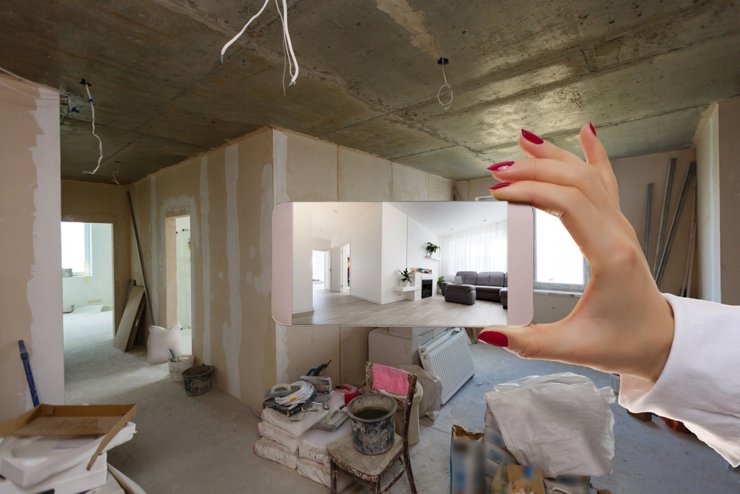Home renovation projects can transform a living space, giving it new life and making it more functional. However, the process often leaves behind a significant amount of trash and debris. Managing trash after a home renovation is a crucial step to ensure your property remains clean, safe, and ready for use. This guide will walk you through effective strategies to handle renovation waste in a responsible and efficient manner.
Planning for Trash Disposal Before Renovation Begins
Before you even start a home renovation project, it’s essential to think ahead about how you’ll manage the waste. Renovation work can generate different types of debris, including construction materials, old furniture, appliances, and even hazardous substances. Planning ahead ensures you’re prepared to deal with this debris efficiently.
Start by estimating how much waste your project will create. Some projects may only involve minor waste, while others—like full kitchen or bathroom renovations—can generate several tons of materials. Once you know the scale, you can choose appropriate disposal options, such as renting a roll-off dumpster or hiring a junk removal service.
Renting a Roll-Off Dumpster
One of the most convenient ways to handle large amounts of renovation waste is by renting a roll-off dumpster. These dumpsters come in various sizes and can be placed directly at your property for easy loading. A roll-off dumpster can accommodate everything from drywall and old flooring to large appliances and construction debris.
Renting a dumpster ensures that all the waste can be stored in one place, reducing the risk of clutter around your home. Additionally, many dumpster rental companies will handle the proper disposal of your waste according to local regulations, saving you time and effort.
Hiring a Junk Removal Service
If your renovation project produces a mix of different types of waste, including bulky items or potentially hazardous materials, a junk removal service may be the best option. These services offer professional crews that will come to your property, load up the waste, and take care of disposing of it safely.
Junk removal services are especially useful when dealing with large pieces like old furniture, bathtubs, or kitchen cabinets. Many companies also specialize in environmentally-friendly disposal methods, such as recycling and donation, ensuring that your waste doesn’t end up in a landfill unnecessarily.
Separating and Sorting Waste Materials
Not all renovation waste should be treated equally. Separating and sorting materials is an essential step for both safety and environmental reasons. Here are some common categories:
Recyclable Materials
Many materials removed during renovation can be recycled. These include:
- Metal fixtures such as pipes, faucets, and appliances
- Wood from framing, old furniture, or cabinetry
- Glass from windows, doors, or mirrors
- Plastics like PVC pipes or other construction elements
By setting aside these materials, you can help reduce the environmental impact of your renovation and potentially save on disposal costs by taking them to a recycling facility.
Hazardous Materials
Certain materials, such as paint, asbestos, or lead pipes, are considered hazardous and require special disposal methods. Never dispose of hazardous materials in regular trash or dumpsters, as this can lead to environmental contamination and legal penalties.
Instead, contact your local waste management authority for guidance on how to dispose of these items safely. In some cases, special pickup services may be available for hazardous materials.
Donating Usable Items
During a renovation, you may find that some items, while no longer needed for your home, are still in good condition. Furniture, cabinets, appliances, and light fixtures are all examples of items that can be donated rather than thrown away.
Donating these items to local charities or non-profits not only helps reduce the volume of waste going to the landfill but also supports those in need. Many organizations offer free pickup services for large donations, making it even easier for you to give back while managing your renovation waste responsibly.
Recycling and Repurposing Construction Debris
Some renovation waste can be repurposed or recycled for other projects. For instance, old wood beams or bricks can be reused in landscaping, while old fixtures can be sold or repurposed for smaller DIY projects. Repurposing materials not only cuts down on waste but also adds a personal touch to future home improvements.
Many construction materials, like concrete, metal, and cardboard, can also be taken to specialized recycling centers. Recycling centers often charge lower fees than landfills, and you can feel good about reducing your environmental footprint.
Proper Disposal of Non-Recyclable Items
While recycling and donation can significantly reduce waste, some materials from your renovation project may not be reusable or recyclable. In these cases, it’s important to ensure they are disposed of correctly.
Non-recyclable items such as insulation, drywall, and ceramic tiles should be placed in designated waste bins or dumpsters. If you’re unsure whether a material is recyclable, check with your local waste management authority or disposal service provider for guidance.
Hiring Professional Post-Renovation Cleaning Services
Once the heavy lifting of removing debris is complete, the final step in managing renovation waste is a thorough cleaning of your home. Renovation projects often leave behind dust, dirt, and small debris that can be hard to manage on your own.
Hiring a professional post-renovation cleaning service can save you time and ensure that your home is safe and ready for use. These services specialize in deep cleaning, including removing fine dust particles from carpets, vacuuming hard-to-reach areas, and disinfecting surfaces that have been exposed to construction materials.
Why Effective Waste Management Matters
Proper waste management after a renovation project is about more than just keeping your home looking good. It’s a crucial part of maintaining a safe, healthy living environment. Uncollected waste can pose safety hazards, from sharp objects to toxic materials, and it can even impact your property’s value.
By taking the time to plan for waste disposal, separate materials, and use the appropriate disposal methods, you can keep your renovation project on track and your home free of debris.
